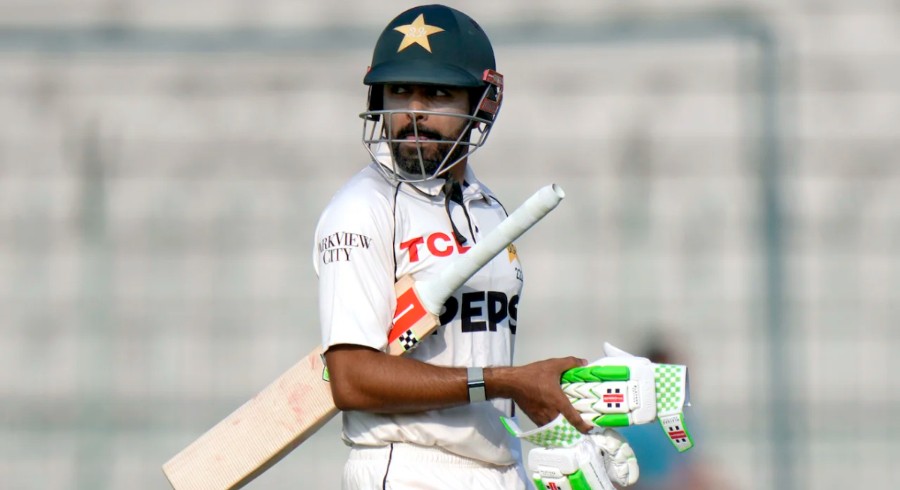The cricketing world has been buzzing with debates and discussions following Pakistan’s recent disappointing defeat against arch-rivals India in the World Cup. In the midst of this turmoil, former Pakistan captain Shoaib Malik has made headlines by suggesting that Babar Azam, the current captain of the Pakistan cricket team, should step down from his leadership role. In this article, we will delve into Shoaib Malik’s perspective and the factors surrounding Babar Azam’s captaincy.
Shoaib Malik’s Opinion on Babar Azam’s Captaincy
Shoaib Malik, a seasoned cricketer with a wealth of experience, did not mince his words when expressing his viewpoint. He believes that Babar Azam would thrive as a player if he relinquished the captaincy. In a local sports show, Shoaib Malik stated, “Look, I will give you my honest opinion on this. I have already said in previous interviews that Babar should leave captaincy, it is just my opinion, but there’s a lot of homework behind it.”
Babar Azam’s Performance as a Captain
The debate over Babar Azam’s captaincy revolves around his performance as a leader. While he is undoubtedly a talented batsman, questions have arisen regarding his ability to inspire and lead the team effectively. Malik argues that Azam’s batting prowess might be overshadowed by the burdens of captaincy, affecting his on-field performance.
Babar Azam as a Batsman
Shoaib Malik has emphasized that as a player, Babar Azam has the potential to achieve remarkable feats. Azam’s consistent performance with the bat has made him one of Pakistan’s most prized assets in the cricketing world. Malik’s contention is that without the added responsibilities of captaincy, Azam could focus solely on his batting prowess, which would benefit both him and the team.
READ MORE: Former Pakistani Pacer Wasim Akram Identifies Haris Rauf’s Weaknesses: A World Cup Analysis
Malik’s Insights into Babar Azam’s Leadership
Malik further highlighted that under pressure, Babar Azam often tends to stick to conventional thinking, despite leading the team for an extended period. These observations, he claims, are not driven by personal motives but by a desire to see the Pakistan cricket team succeed.
A History of Pakistan’s Recent Defeats
Pakistan’s cricketing struggles against India have been a recurrent theme in recent times. The defeat in the World Cup followed another loss to India in the Asia Cup 2023. These losses have intensified the scrutiny on Babar Azam’s captaincy.
The Impact of Babar Azam’s Captaincy on the Team
The impact of a captain on a cricket team cannot be understated. Leadership style, tactical decisions, and the ability to motivate players are all essential qualities. Malik’s concern is that Azam’s leadership style might not be the right fit for the team, especially in high-pressure situations.
The Asia Cup 2023 Defeat
In September, the ‘Men in Green’ were defeated by India in the Asia Cup 2023, adding to the pressure on Babar Azam’s captaincy. The inability to secure victories against their arch-rivals raised questions about the direction in which the team was heading.
Debates About Babar Azam’s Captaincy
The World Cup defeat by seven wickets fueled intense debates about Babar Azam’s future as the captain. Cricket enthusiasts, experts, and former players have been sharing their opinions, with Malik’s views being among the most prominent.
Shoaib Malik’s Objective
It is essential to understand that Shoaib Malik’s objective is not to undermine Babar Azam but to encourage a discussion about the best way forward for the team. His insights are based on years of experience and a deep passion for Pakistan cricket.
The Team’s Future
The future of Pakistan’s cricket team is at a crossroads. The decision regarding Babar Azam’s captaincy will have far-reaching implications. Whether he continues as the captain or focuses solely on his batting, the team’s fortunes will be closely watched by cricket fans worldwide.
Conclusion
The debate over Babar Azam’s captaincy is a reflection of the passionate and dedicated cricket community in Pakistan. Shoaib Malik’s opinion, rooted in experience, adds another layer to this ongoing discussion. The future of Pakistan’s cricket team remains uncertain, but it is certain that the conversation will continue.




